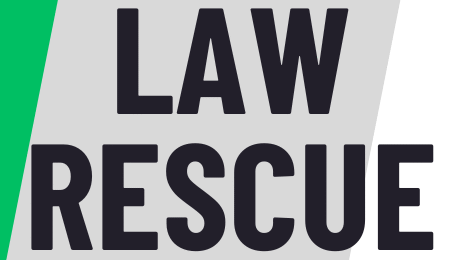Ever felt unfairly fired and wondered if you have a case? Deciding to hire an employment law attorney can be tough. But it’s a key step in fighting for your rights.
Finding the right lawyer is vital. It can change your case’s outcome from the start. A skilled wrongful termination lawyer will help you understand employment law. They’ll also help build a strong case for you.
Choosing the right lawyer is more than just winning. It’s about getting the compensation you deserve. With the right attorney, you’ll feel confident in the legal process.
Wrongful Termination in the United States
Wrongful termination is a big problem in U.S. workplaces. It happens when an employer fires someone illegally. This can be because of discrimination, retaliation, or breaking an employment contract. Knowing your rights and the laws about wrongful termination is key if you’re facing this.

Legal Definition of Wrongful Termination
Wrongful termination means firing someone illegally. It includes firing based on discriminatory reasons like race, gender, age, or disability. It also covers firing someone for reporting illegal activities or for standing up for their rights.
At-Will Employment and Its Exceptions
In most U.S. states, employment is “at-will.” This means an employer can fire someone without cause, unless it’s discriminatory or retaliatory. But, there are exceptions. For example, contracts can have rules about firing or protecting against unfair dismissal.
Federal and State Laws Protecting Employees
Many federal and state laws protect employees from wrongful termination. Laws like Title VII of the Civil Rights Act of 1964 and the Americans with Disabilities Act (ADA) stop discriminatory practices. Also, many states have their own laws that add more protection. It’s important to know both federal and state laws when facing wrongful termination.
If you’re facing wrongful termination, getting advice from a wrongful dismissal legal counsel or a termination of employment lawyer is a good idea. They can help you understand your rights and what to do next.
Signs You May Have a Wrongful Termination Case
Figuring out if your firing was wrong is the first step to getting justice and possibly getting back pay. If you were let go because of discrimination, retaliation, or a broken contract, you might have a case.
Discrimination-Based Termination
Discrimination-based firing happens when someone is let go because of their race, gender, age, disability, or other protected traits. If you think you were fired unfairly, talking to a workplace discrimination attorney can help you know your rights.
Retaliation for Protected Activities
Retaliation occurs when an employer fires someone for doing something they’re protected to do, like reporting harassment or filing a complaint. If you were fired after speaking up about wrongdoing, you might have a case against your former boss.
Breach of Employment Contract
If you have a contract at work, whether it’s written or implied, and your firing breaks its rules, you might have a wrongful termination claim. An unfair dismissal lawyer can guide you through the contract’s details.
Violations of Public Policy
Terminations that go against public policy, like firing someone for serving on a jury or refusing to do something illegal, are considered wrong. Knowing these violations is key to building a strong case.
| Signs of Wrongful Termination | Description |
|---|---|
| Discrimination | Firing based on race, gender, age, or other protected characteristics |
| Retaliation | Termination for reporting wrongdoing or participating in investigations |
| Breach of Contract | Violating the terms of an employment contract |
| Public Policy Violation | Firing for reasons that contravene public policy, such as jury duty or reporting crimes |
When to Hire a Wrongful Termination Lawyer
Deciding to hire a wrongful termination lawyer should happen quickly after you’re fired. This ensures you meet important deadlines. Knowing when to file a claim is key.
Timing Considerations After Being Terminated
Think about hiring a labor law specialist right after you’re let go. Acting fast helps you collect evidence and build a strong case.
Statute of Limitations for Filing Claims
The time limit for wrongful termination claims varies by state. It can range from 180 days to several years. Here’s a quick look:
| State | Statute of Limitations |
|---|---|
| California | 1-3 years |
| New York | 3 years |
| Texas | 180 days to 2 years |
Situations That Definitely Require Legal Representation
Some cases need a wrongful termination lawyer, like discrimination or whistleblowing. If you’re not sure, talking to a labor law specialist can help.

Understanding timing and legal needs helps you decide to hire a wrongful termination lawyer. This protects your rights.
What a Qualified Wrongful Termination Lawyer Can Do for You
If you’ve been wrongfully fired, a skilled lawyer can guide you. They can explain your rights and what you can do next. A wrongful dismissal legal counsel knows how to deal with employment law’s tricky parts.
Case Evaluation and Legal Strategy Development
A top employment law attorney will first check your case’s strength and possible results. Then, they’ll create a plan just for you.
- Assess the strength of your case
- Identify possible legal claims
- Plan how to move forward with your claims
Handling Administrative Filings and Deadlines
Your lawyer will take care of all the paperwork and make sure everything is on time.
Negotiating with Employers and Their Counsel
An experienced wrongful termination lawyer will talk to your old boss and their lawyer. They aim to get you a fair deal.
Representing You in Court Proceedings
If your case goes to court, your employment law attorney will be there for you. They’ll present your case and fight for you.
Choosing a qualified wrongful termination lawyer means your rights are in good hands. You’ll get the compensation you deserve.
How to Find a Wrongful Termination Lawyer
Finding a good wrongful termination lawyer is a mix of personal tips, professional groups, and online searches. When you’ve been unfairly fired, the right lawyer can really change your case’s outcome.
Referrals from Friends and Colleagues
Getting a good termination of employment lawyer often starts with personal advice. Ask people you know who’ve faced similar issues for lawyer suggestions.
Bar Association Referral Services
Local and state bar groups have referral services. They can link you with workplace discrimination attorneys nearby. These services help find lawyers who specialize in wrongful termination.
Online Legal Directories and Reviews
Online legal sites and reviews can show many lawyers. Look for those with good feedback and wrongful termination experience.
Employment Rights Organizations
Groups focused on job rights are also helpful. They might suggest lawyers or provide other useful resources.
Researching a Wrongful Termination Lawyer’s Credentials
To find a good labor law specialist, you must research their credentials. This involves several key steps. These steps help you understand their qualifications and experience in wrongful termination cases.
Verifying Bar Admission and Standing
The first step is to check if the lawyer is admitted to practice in your state. They should also be in good standing with the state bar association. You can find this information on the state bar’s website. Make sure they have no disciplinary actions against them.
Reviewing Educational Background
Look at the lawyer’s educational background. This includes their law degree and any relevant certifications. A good lawyer will have credentials from accredited institutions. They should also have additional education or training in employment law.
Checking Professional Associations and Certifications
Membership in professional associations, like the American Bar Association (ABA), shows a lawyer’s commitment. State-specific employment law associations are also important. Certifications in employment law are a big plus.
Examining Case History and Success Rates
Review the lawyer’s case history and success rates in wrongful termination cases. A table summarizing their experience can be helpful:
| Case Type | Number of Cases | Success Rate |
|---|---|---|
| Wrongful Termination | 50 | 80% |
| Employment Discrimination | 30 | 75% |
By thoroughly researching a wrongful termination lawyer’s credentials, you can make an informed decision. This increases your chances of a favorable outcome in your case.
Evaluating a Lawyer’s Experience with Cases Like Yours
To win your case, it’s key to pick a lawyer with the right experience. Look at several important factors that can change your case’s outcome.
Industry-Specific Experience
A lawyer who knows your industry can offer great insights. For example, a healthcare lawyer can understand the rules and issues that affect jobs.
Experience with Your Type of Wrongful Termination
It’s important to find a lawyer who has dealt with your type of case. Whether it’s about discrimination, retaliation, or contract issues, their experience matters a lot.
Track Record of Settlements and Verdicts
Check a lawyer’s past wins to feel confident in their skills. Look for cases where they got good settlements or verdicts.
Experience with Your Former Employer or Similar Companies
A lawyer who knows your old employer can help a lot. They understand the company’s rules, practices, and legal team, which helps in negotiations or court.
| Experience Factor | Importance | What to Look For |
|---|---|---|
| Industry-Specific Experience | High | Familiarity with industry regulations and practices |
| Experience with Your Type of Wrongful Termination | High | Proven track record in handling similar cases |
| Track Record of Settlements and Verdicts | High | History of successful outcomes |
| Experience with Your Former Employer | Medium | Familiarity with company policies and legal representation |
By looking at these points, you can choose the best wrongful termination lawyer for you.
What to Prepare Before Your Initial Consultation
To get the most out of your first meeting with a termination of employment lawyer, prepare in advance. Having the right materials will help your lawyer grasp your situation and offer the best advice.
Gathering Employment Documents
Start by collecting all important work documents. This includes your contract, performance reviews, and any emails or letters from your employer. These papers will help your wrongful dismissal legal counsel see how strong your case is.
Creating a Timeline of Events
Make a detailed timeline of what happened before you were let go. Include dates, times, and what happened. This timeline will help your lawyer find key evidence and strengthen your case.
Listing Possible Witnesses
Write down who might know something about your firing. This could be coworkers, bosses, or clients. Your lawyer will figure out who’s most important for your case.
Organizing Evidence of Wrongdoing
Put together any proof that shows your firing was unfair. This could be emails, witness statements, or records of unfair treatment. Make sure this evidence is easy for your lawyer to review.
Key Questions to Ask During Your Lawyer Consultation
Before you hire a lawyer, make a list of important questions to ask. This meeting is a chance to see if the lawyer fits your needs. You’ll learn about their experience and how they work.
Questions About the Lawyer’s Experience and Approach
It’s important to know the lawyer’s background in wrongful termination cases. Ask about their experience with cases like yours. You might ask, “Can you share examples of previous wrongful termination cases you’ve handled?” or “How do you typically approach settlement negotiations versus going to trial?”
Questions About Your Case’s Strength and Value
A good workplace discrimination attorney will give you an idea of your case’s strength and value. Ask, “What are the key factors that will influence the outcome of my case?” or “How do you estimate the possible compensation or settlement in my case?”
Questions About Strategy and Timeline
It’s important to know the lawyer’s plan and how long it will take. You might ask, “What are the immediate next steps if we decide to work together?” or “How long do you think it will take to solve my case?”
Questions About Communication and Availability
Good communication is key to a successful relationship with your lawyer. Ask about how often you’ll get updates and how quickly they’ll respond. You might ask, “How will we communicate throughout my case?” or “Who will be my main contact?”
| Category | Sample Questions |
|---|---|
| Experience and Approach | Can you share examples of previous cases? How do you approach settlement negotiations? |
| Case Strength and Value | What factors influence my case’s outcome? How do you estimate possible compensation? |
| Strategy and Timeline | What are the next steps? How long will it take to solve my case? |
| Communication and Availability | How will we communicate? Who will be my main contact? |
By asking these questions, you’ll be able to pick an unfair dismissal lawyer who’s right for your case.
Understanding Fee Structures for Wrongful Termination Cases
Wrongful termination cases are complex and involve different fee structures. Knowing how labor law specialists charge can help you make better choices. It’s important to understand this when dealing with job loss.
Contingency Fee Arrangements
Many wrongful termination lawyers work on a contingency fee basis. This means you only pay if you win or get a settlement. The lawyer’s fee is usually a percentage of the award, between 30% to 40%.
Hourly Billing Options
Some lawyers charge by the hour. The rate can change based on experience, location, and case complexity. It’s key to get an estimate of total hours needed for your case.
Retainer Agreements
In some cases, a lawyer might ask for a retainer agreement. This is an upfront fee that’s used as the lawyer works on your case. Any unused part of the retainer may be returned to you.
Additional Costs and Expenses
There are other costs in wrongful termination cases. These include filing fees, medical records, expert testimony, and travel. A good lawyer will talk about these costs with you upfront.
| Fee Structure | Description | Typical Cost |
|---|---|---|
| Contingency Fee | No fees unless you win | 30% to 40% of award |
| Hourly Billing | Charged per hour worked | Varies by hour |
| Retainer Agreement | Upfront fee billed against hours worked | Depends on retainer amount |
Knowing about these fee structures helps you pick the right lawyer. Always talk about fees and costs during your first meeting. This way, you can avoid surprises later.
Red Flags to Watch for When Choosing a Wrongful Termination Lawyer
When looking for a wrongful termination lawyer, watch out for red flags. Your employment law attorney will fight for you in a complex legal battle. Choosing the right one is very important.
Unrealistic Promises or Guarantees
Be careful of a wrongful dismissal legal counsel who promises too much. No lawyer can know the future for sure. Such claims might show they lack integrity or experience.
Poor Communication or Responsiveness
If a lawyer doesn’t answer your calls or emails, it’s a bad sign. Good communication is essential for a strong lawyer-client bond.
Pressure to Make Quick Decisions
A reliable lawyer will help you make informed choices without rushing you. Be cautious of wrongful termination lawyers who try to rush you into decisions.
Vague or Confusing Fee Structures
It’s important for lawyers to be clear about their fees. If their billing is unclear, it could lead to surprise costs. Make sure you understand how your employment law attorney will charge you.
Knowing these red flags helps you choose the right wrongful dismissal legal counsel. The right lawyer can greatly affect your case’s outcome.
The Legal Process for Wrongful Termination Claims
Filing a wrongful termination claim has several key steps. These steps are important for a good outcome. Knowing them helps you understand the legal process better. You can do this with the help of a termination of employment lawyer or workplace discrimination attorney.
Administrative Complaints (EEOC and State Agencies)
The first step is often filing a complaint with the EEOC or a state agency. You need to write a detailed complaint about your termination.
- Make sure to file on time.
- Give all the details of your claim.
- This step is usually needed before you can sue.
Demand Letters and Settlement Negotiations
After filing a complaint, your lawyer might send a demand letter to your former employer. This letter states your claims and what you want in compensation. It could lead to talks about settling the case.
- A demand letter can help avoid court.
- Settlement talks need careful planning and knowing your case’s worth.
Filing a Lawsuit
If talks fail, you might need to sue. This means filing legal papers in court. You’ll claim wrongful termination and ask for damages.
Discovery, Depositions, and Trial Preparation
After suing, the case goes into discovery. Both sides share information and evidence. Depositions might happen, and you’ll prepare for trial.
- Collect all important documents and evidence.
- Get ready for depositions by knowing what questions you’ll face.
- Work with your lawyer to build a strong case.
Trial or Alternative Dispute Resolution
The last step could be a trial, where your case is heard by a judge or jury. Or, it might be solved through mediation or arbitration.
The legal steps for wrongful termination claims are complex. But with the right lawyer, you can handle it. A skilled workplace discrimination attorney or termination of employment lawyer will help you succeed.
Alternative Dispute Resolution Options
Alternative dispute resolution methods can offer a quicker, less stressful way to solve your wrongful termination case. An unfair dismissal lawyer or labor law specialist can help you explore these options.
Mediation Benefits and Process
Mediation uses a neutral third party to help you and your former employer find common ground. It’s a less confrontational way that can help keep working relationships intact.
Arbitration Considerations
Arbitration involves a neutral arbitrator making a final decision after hearing both sides. It’s often quicker and less formal than a court trial.
Settlement Conferences
Settlement conferences let both parties try to agree on a settlement with a mediator or judge’s help. This can be a good way to avoid a trial.
When ADR Might Be Preferable to Litigation
ADR might be better if you want to avoid the costs and publicity of a court trial. It’s also good when you need a quick resolution.
Building Your Case with Your Chosen Lawyer
Your lawyer will help you build a strong wrongful termination case. They will gather evidence and create a legal plan. This teamwork is key for a good result.
Developing a Case Strategy
Your wrongful termination lawyer will make a plan just for you. They’ll look at your termination, find important evidence, and choose the best legal steps.
Gathering Additional Evidence
Finding evidence is a big part of your case. Your employment law attorney will find documents, talk to witnesses, and get other evidence to back your claim.
Preparing for Depositions and Testimony
Getting ready for depositions and testimony is important. Your lawyer will help you know what to expect and how to share your story well.
Managing Emotional Aspects of Your Case
Wrongful termination cases can be tough emotionally. Your lawyer will give legal advice and support you emotionally. They’ll help you get ready for what’s next.
Working with your wrongful termination lawyer will help you build a strong case. This can lead to a better outcome for you.
Conclusion: Making Your Final Decision on Legal Representation
When choosing a lawyer for a wrongful termination case, think about what’s important. The right lawyer is key to winning your case. You need someone who knows your situation well and can handle the legal details.
Look at the lawyers’ experience and skills. Check if they’ve dealt with cases like yours before. It’s also important to see if they communicate well and are available when you need them.
Your choice should be based on who you think can help you the most. By picking a skilled lawyer, you can feel confident about your case.

